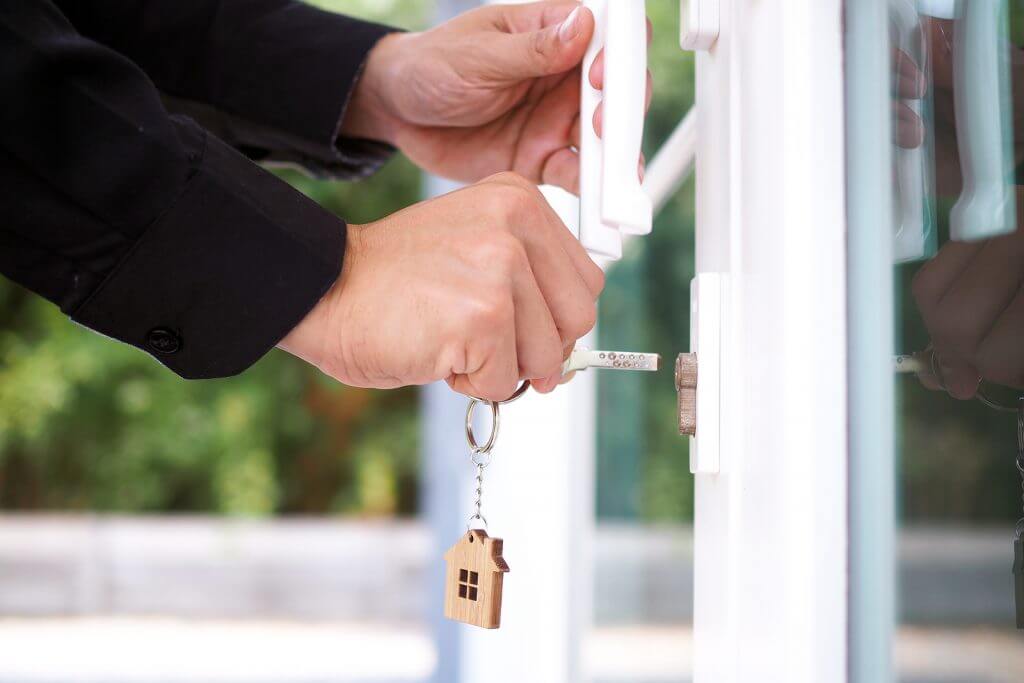
May 24, 2021 | Home & Property | 6 minute read
Expat Tax Blog. Tax Tips for US Americans abroad.

Anyone buying property abroad should be aware of the tax implications of Expats. It can be a stressful situation to walk through, especially when taxes are involved. Think foreign exchange rates, country-specific mortgages, different tax laws, and legal structures. Not to mention the implications on your US Expat Tax Return!
Furthermore, US citizens abroad are responsible for reporting worldwide income if they reach the filing threshold. It’s even more true that you need to add foreign property transaction info on a tax return too!
We’re breaking down the most important points to consider regarding your US expat taxes while buying or selling property abroad. MyExpatTaxes are happy to help!
Transactions within the real estate area are much different than US transactions? This is why we emphasize checking your local country’s home insurance requirements and real estate laws. You’ll have to make sure buying property abroad as an expat is legal and safe!
Additionally, you may open up a bank account in your host country to help manage foreign property taxes and mortgages. To first open up a bank account, you’ll need to fill out some paperwork due to the FATCA. Plus, you may have to file an FBAR every year (read more on that in number 5).
When you buy property abroad as an American expat, you’ll probably have to make a down payment and transfer a large sum of money while doing so. This might result in your foreign financial accounts needing the FBAR or Form 8938 reporting requirements.
Additionally, there may be significant foreign exchange rates and fees to be aware of when it comes to living overseas. Therefore, you might want to hire a broker to help you save as much money as possible within the purchasing transaction.
Before buying property abroad as an expat, check with your local US embassy or expat community regarding local property taxes and laws you need to know.
Every year the law and foreign purchasing costs can change, so it’s important to stay updated. Purchasing costs may be higher than US real estate transactions, so check your local community for updated information. Appropriately planning and doing the proper research can save you loads of money in the long term.
For many countries, it’s customary to purchase your foreign property within a holding corporation instead of in your name. For example, if your local government has different options for the holding corporation, we suggest you contact us before deciding. There may be some types of entities abroad that will make it difficult for you to qualify for gain exclusions which result in costly tax forms.
Despite your property’s location, your mortgage points and interest are still deductible on your US taxes. Yet, this info needs to be reported in USD on your tax return. You can use our app or the IRS annual exchange conversion rate to convert your foreign money into US dollars when claiming your deduction.

While living on a property abroad, you’ll have gains or losses that come from the foreign exchange rate you converted while paying off your mortgage.
Using the currency exchange that brought a gain or loss due to paying off the mortgage is considered personal by the IRS. This means that any losses are not deductible. Yet, any gain you acquired, as a result, can be taxed at ordinary income rates.
Keep in mind that if you held your residence for at least a year abroad, you could qualify for capital gain tax rates at the lower, long-term level. However, it’s not possible to use losses on the sale of your home abroad to offset currency exchange rate gains.

A “tax home test” from the IRS states that US citizens or Green Card Holders cannot qualify for the Foreign Earned Income Exclusion (FEIE) unless their tax home, or abode, is outside the United States.
An abode is a residence, home, or space of the dwelling. Your economic and social connections also determine the location of your place.
Additionally, the “tax home” is generally considered the area where you work – whether permanently or through indefinite work. Plus, the IRS explicitly states your abode or home cannot be in the US to qualify for the Foreign Earned Income Exclusion.
However, there are some exceptions. For example, you could be renting out your Manhattan apartment while working for Disney in Hungary and can still qualify for FEIE. Why? Because your tax home is in a foreign country.
The Foreign Earned Income Exclusion can help expats exclude up to $107,600 of foreign earned income off US expat taxes. To be eligible, you need to pass the Physical Presence Test or Bona Fide Residence Test:
Physical Presence Test: You were outside of the US for 330 full days in a consecutive 12 month period, beginning or ending in the tax year.
Bona Fide Residence test: You were a registered resident and subject to local taxes in your host/foreign country for a full calendar year.
21 Things to Know About US Expat Taxes in 2021
To start utilizing the FEIE, by filling out Form 2555, you’ll need to convert the foreign currency into USD. Our app within our expat tax software can do this for you effectively.
If the IRS ever questions you about using the FEIE, you need to prove that you are living the expat life for real. Examples of proof are having foreign bank account records, cell phone registration within the host country, and registration forms from clubs you’re a part of. The IRS takes the tax home test seriously to make sure expats aren’t violating the FEIE.
Once you sign the papers for purchasing a property, you’ll need to transfer your funds to the vendor. In most cases, expats usually transfer the money from a US bank account into a foreign bank account and then send it to the vendor.
By doing this process, American citizens living abroad will most likely exceed $10,000 in their foreign bank accounts. When or if this ever happens, the FBAR responsibility gets triggered.
The FBAR, or Foreign Bank Account Report, is an essential form Americans abroad need to fill out once they reach the $10,000 threshold. Expats can quickly fill out the FBAR via the MyExpatTaxes app and the software will automatically determine if the more extension FATCA Form 8938 is also required.

By loading the video, you agree to YouTube's privacy policy.
Learn more
Always unblock YouTube
If you don’t want to fill out the FBAR, you can transfer your funds directly from the US bank account to the vendor’s account.
When you buy a house abroad, you won’t be making any income, and therefore, it won’t trigger anything for the IRS. This means you don’t need to report anything to the IRS in the first year you buy a home as an American living abroad.
However – keep records because when you sell a house abroad – it’s a different story. You’ll need to have records of the income you made off of the home and property, plus the cost of improvements, etc.
When buying real estate overseas as your primary or second home, you cannot claim personal or real property taxes as an itemized deduction.
However, as mentioned above, you can’t claim foreign mortgage interest as deductions on your US tax return. Yet, you can claim foreign property taxes as an expense if renting out your foreign property. This is discussed more in the next section.
If you’re buying property abroad as an expat to rent out, you’ll be subject to a different set of tax rules. Rental income will need to be declared on your US tax return on Form 1040 Schedule E.
From this, you won’t be able to deduct mortgage interest; however, you can deduct property taxes, repairs, maintenance, utilities, insurance, management fees, and depreciation.
When it comes to foreign property, depreciation will need to calculate over either 30 or 40 years depending on when you started renting out the property. Foreign rental properties cannot use the 27.5-year residential property depreciation period that most US renters are used to. Depreciation is a reduction in the value of an asset over time due to wear and tear.
Lastly, if you pay tax abroad on your foreign property rental income, you can claim the Foreign Tax Credit (FTC). This is a dollar-for-dollar reduction on your US taxes that goes toward your foreign earned income.
Have you decided on buying property abroad as an expat? We then suggest consulting with the US Embassy professionals and/or international real estate brokers may be best.
When it comes to US expat taxes, we’re here to make the best decisions and avoid unnecessary fees and penalties. Get started today by registering on our app today!